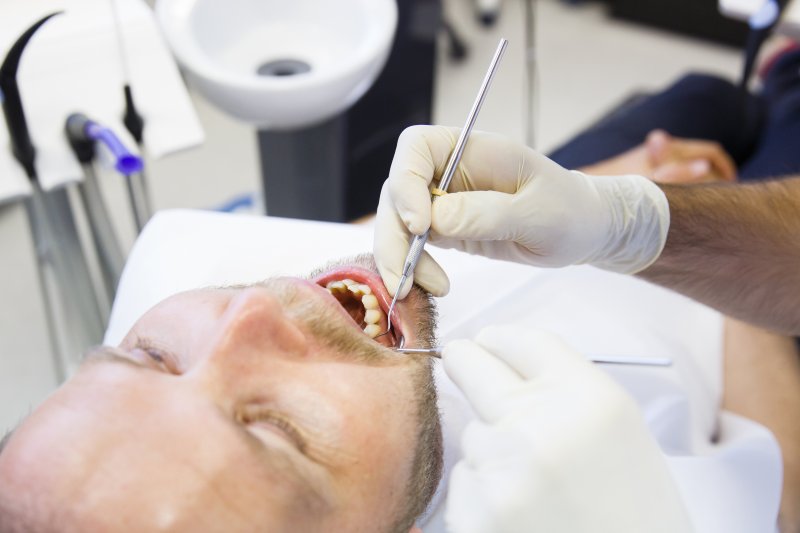
Since you were a child, you’ve heard about the dangers of dental decay. With all the focus on cavities, they seem to be the only thing dentists treat, right? While they are one of the frequent issues that dental professionals see, they’re certainly not the only ones. If you want to avoid spending additional time and money receiving restorative dental work, find out how regular dental checkups can help to reduce your risk of these 3 common oral health problems.
Which Oral Health Problems Do Dentists Treat Most Frequently?
According to the Centers for Disease Control and Prevention (CDC), more than 80% of people will have at least one cavity before they reach the age of 34. With more than $124 billion spent on dental care every year, it’s no wonder that there is a strong emphasis on preventive services.
For decades, tooth decay has been and continues to be one of the most prominent oral health problems, but there are also new ones that are becoming equally serious. The top three include:
- Cavities: When your tooth enamel begins to break down as a result of bacteria that form inside the mouth. Found in plaque, it rests on the surfaces of teeth and the gumline, often as a result of sugary or starchy foods and beverages. Harmful acids then form and begin to eat away at the outer layer of teeth, causing demineralization and ultimately, cavities.
- Gum Disease: When an infection or inflammation forms within the gum tissue, it can begin to affect the teeth and bone. As small gum pockets form, more bacteria become trapped, causing a more serious problem known as periodontitis. The issue results in loose teeth and bone loss and can even attack the body if the infection is allowed to enter the bloodstream, resulting in diabetes, negative cognitive decline, heart disease, and more.
- Oral Cancer: Each year, an average of 50,000 people are diagnosed with oral cancer, many of whom do not discover they have it until it is in the latter stages. Forming within the soft tissues, throat, tongue, or other nearby oral structures, it requires early detection if patients are to have the best chance of survival. Smoking, alcohol consumption, and even sexually transmitted diseases like HPV are often the greatest reasons for oral cancer to form.
How Can Dental Checkups Help to Reduce the Risks of These Problems?
By choosing to keep your six-month dental checkups with your dentist, you will discover that you have a greater chance of avoiding these problems. The reason is that your dental professional can see what you cannot.
Using specialized instruments and diagnostic imaging, they can detect the earliest signs of decay while also checking for abnormalities that might indicate oral cancer. Because tooth decay, gum disease, and oral cancer are best found in their initial stages, you have a better chance of receiving timely treatment that addresses the issue and minimizes your chances of more invasive care later on.
This is only possible, though, if you commit to seeing your dentist twice each year. Maintaining good oral hygiene at home is important, but your toothbrush, dental floss, and mouthwash can only do so much. You need the expertise of a trained professional who can look deep beneath the surface to ensure that your smile is in the best possible shape year-round.
Don’t allow yourself to reschedule or cancel your dental checkup and teeth cleaning appointments. Giving a small bit of your time twice each year will give you the opportunity to smile more confidently and live a healthier life.
About the Author
Dr. Deval Parmar has more than a decade of experience working in the field of dentistry. As the dentist at Archway Dental, she and her team place a strong emphasis on preventive care. This is why she encourages her patients to keep their six-month dental checkups. In doing so, they stand a better chance of avoiding restorative dentistry that is often needed to treat cavities, gum disease, and other oral healthcare problems. If you are ready to take better care of your smile, contact us at (972) 972-4646.
